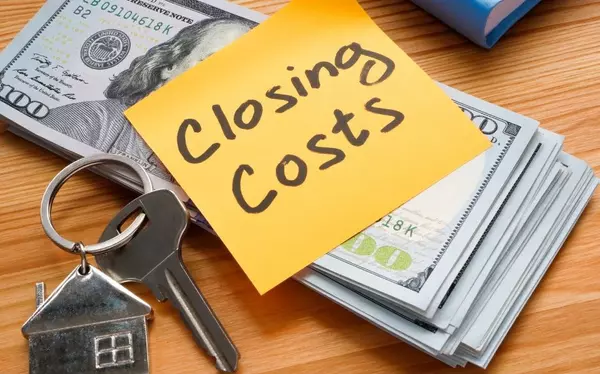Why is Home Ownership Good for Everyone?
Why is Home Ownership Good for Everyone?
Introduction:
Home ownership, defined as the possession and control of a residential property, holds a multifaceted significance beyond mere ownership. It encapsulates stability, financial security, and a sense of belonging. In today's society, where housing is not just a shelter but a symbol of one's achievements and aspirations, the benefits of owning a home extend far beyond the individual.
The essence of home ownership lies in its ability to foster stability. Unlike renting, which is subject to fluctuations in market conditions and landlord decisions, owning a home provides a sense of permanence and control over one's living situation. This stability transcends into financial security, as homeowners build equity over time, securing their future and that of their families.
Communities thrive when residents have a vested interest in their surroundings. Homeowners are more likely to invest in their properties, enhancing neighborhood aesthetics and fostering a sense of pride. This, in turn, leads to stronger community bonds and safer neighborhoods, where residents actively participate in local initiatives and support each other.
Moreover, the benefits of home ownership ripple through society, contributing to economic growth and social cohesion. Homeowners are more inclined to invest in their communities, stimulating local economies through consumer spending and property improvements. Additionally, studies have shown that stable housing environments positively impact educational outcomes for children, laying the foundation for future generations' success.
5 Key Takeaways:
- Stability and Security: Home ownership provides a sense of permanence and control over one's living situation, fostering stability and security for individuals and families.
- Financial Prosperity: From equity accumulation to tax advantages, home ownership offers a pathway to long-term wealth building and financial independence.
- Community Engagement: Homeowners are more likely to invest in their communities, enhancing neighborhood aesthetics and fostering stronger community bonds and social connections.
- Economic Growth: Homeownership stimulates economic growth through increased consumer spending, property improvements, and support for local businesses, contributing to the overall vibrancy of communities.
- Inclusive Opportunity: Overcoming challenges such as affordability concerns and disparities in access requires collaborative efforts and innovative solutions to ensure that home ownership remains an attainable goal for everyone, fostering greater equity and inclusion in society.
Financial Benefits of Home Ownership
Home ownership offers a myriad of financial advantages that extend far beyond the initial investment. From equity accumulation to long-term wealth building, owning a home is a cornerstone of financial stability and prosperity.
One of the primary financial benefits of home ownership is equity accumulation. Unlike renting, where monthly payments contribute solely to the landlord's equity, homeowners gradually build equity in their property with each mortgage payment. Equity represents the difference between the property's market value and the remaining mortgage balance, effectively serving as a form of forced savings and a valuable asset.
Furthermore, home ownership provides stability in housing costs, shielding homeowners from the unpredictability of rent increases. With a fixed-rate mortgage, monthly payments remain consistent over the loan term, allowing homeowners to budget effectively and plan for the future without the fear of sudden spikes in housing expenses.
Additionally, homeowners can benefit from various tax advantages, including deductions for mortgage interest, property taxes, and home equity loan interest. These deductions can result in substantial savings, further enhancing the financial attractiveness of home ownership.
Perhaps most importantly, home ownership facilitates long-term wealth building. Historically, real estate has proven to be a reliable investment, with property values appreciating over time. As homeowners pay down their mortgage and property values increase, they accumulate wealth and create a valuable asset that can be leveraged for future financial endeavors.
Emotional and Psychological Benefits of Home Ownership
Beyond the financial advantages, home ownership offers a plethora of emotional and psychological benefits that enrich the lives of homeowners and contribute to their overall well-being.
One of the most profound emotional benefits of home ownership is the sense of security and stability it provides. Unlike renting, where the threat of displacement looms with each lease renewal, owning a home instills a deep sense of permanence and belonging. Knowing that they have a place to call their own, where they can put down roots and create lasting memories, brings a profound sense of comfort and peace of mind to homeowners.
Moreover, the pride of ownership associated with owning a home cannot be understated. It's more than just a financial asset; it's a reflection of one's achievements and aspirations. From the moment they receive the keys to their property, homeowners take pride in their investment, diligently maintaining and improving their homes to enhance its value and create a environment that accurately represents their personality and lifestyle.
The freedom to personalize and customize living spaces is another significant emotional benefit of home ownership. Unlike renting, where tenants are often restricted in how they can decorate or modify their living spaces, homeowners have the creative freedom to design their homes according to their preferences and tastes. This sense of ownership and control over their living environment fosters a deeper connection to the space and enhances their overall sense of satisfaction and well-being.
Furthermore, home ownership promotes stronger community ties and social connections. Rooted in a stable living environment, homeowners are more likely to engage with their neighbors, participate in local events, and contribute to community initiatives. These social interactions not only enrich their personal lives but also create a sense of belonging and solidarity within the community.
Impact of Home Ownership on Families and Communities
Home ownership transcends individual benefits; it profoundly influences the well-being of families and the vitality of communities, fostering stability, prosperity, and a sense of belonging.
One of the most significant impacts of home ownership on families is its positive effects on children's well-being and education. Studies have consistently shown that children raised in owned homes tend to fare better academically, emotionally, and socially than those in rented accommodation. The stability and security provided by home ownership create a nurturing environment that supports children's development and fosters a sense of stability crucial for their overall well-being.
Furthermore, home ownership contributes to neighborhood stability and safety. Homeowners are more invested in their communities, actively participating in neighborhood watch programs, and engaging with local authorities to address safety concerns. This collective effort fosters a safer and more cohesive community environment, where residents look out for one another and take pride in their surroundings.
Moreover, home ownership serves as an economic stimulus for communities through home improvement projects and support for local businesses. Homeowners invest in property upgrades and renovations, boosting property values and enhancing the aesthetic appeal of neighborhoods. Additionally, they are more likely to support local businesses, contributing to the economic vibrancy of the community and creating opportunities for growth and development.
Finally, home ownership fosters a sense of belonging and community engagement. Rooted in a stable living environment, homeowners develop strong social connections with their neighbors, participate in community events, and volunteer for local initiatives. This sense of belonging not only enhances their quality of life but also strengthens the social fabric of the community, creating a supportive and inclusive environment for all residents.
Social and Economic Advantages of Home Ownership
Home ownership serves as a catalyst for social mobility and economic empowerment, fostering financial independence, reducing inequality, stimulating economic growth, and strengthening community bonds.
One of the primary social advantages of home ownership is its role in promoting economic mobility and financial independence. By providing individuals with a pathway to build equity and accumulate wealth, home ownership enables them to achieve greater financial stability and upward mobility. This, in turn, empowers individuals to pursue their goals, invest in their future, and build a better life for themselves and their families.
Moreover, home ownership plays a crucial role in reducing inequality by enabling wealth accumulation among diverse populations. Historically, disparities in homeownership rates have contributed to wealth disparities between racial and ethnic groups. By expanding access to homeownership opportunities, particularly among marginalized communities, we can address these inequalities and promote greater economic equity and social justice.
Furthermore, home ownership stimulates economic growth through increased consumer spending and investment. Homeowners are more likely to invest in their properties, stimulating demand for goods and services related to home improvement, renovation, and maintenance. Additionally, homeownership encourages responsible financial behavior, as individuals strive to maintain and improve their creditworthiness to qualify for mortgage financing.
Finally, home ownership strengthens civic participation and social cohesion by fostering a sense of pride, belonging, and responsibility within communities. Rooted in stable living environments, homeowners are more likely to engage in civic activities, volunteer for local initiatives, and participate in community organizations. This active participation not only enhances the vibrancy of communities but also fosters greater social cohesion and solidarity among residents.
Overcoming Challenges and Barriers to Home Ownership
While home ownership offers numerous benefits, many individuals face significant challenges and barriers on their path to becoming homeowners. Addressing these obstacles requires a multifaceted approach that encompasses affordability concerns, disparities in access, government policies, and innovative solutions.
Affordability concerns and access to financing represent one of the primary barriers to home ownership for many individuals. Rising housing costs, coupled with stringent lending criteria, can make it difficult for aspiring homeowners to qualify for mortgage financing. To address this challenge, initiatives aimed at expanding access to affordable housing and providing financial assistance to low- and moderate-income households are essential.
Moreover, addressing disparities in access to homeownership among marginalized communities is crucial for promoting greater equity and inclusion in the housing market. Historical and systemic barriers, such as discriminatory lending practices and redlining, have contributed to disparities in homeownership rates between racial and ethnic groups. Implementing policies and programs that address these disparities and promote fair and equitable access to housing opportunities is imperative.
Government policies and initiatives play a vital role in supporting affordable housing and expanding homeownership opportunities. This includes measures such as down payment assistance programs, low-interest mortgage loans, and incentives for developers to build affordable housing units. Additionally, zoning and land use policies that encourage mixed-income neighborhoods and promote housing affordability can help address affordability concerns.
Furthermore, innovative solutions and programs are needed to assist first-time homebuyers in navigating the complexities of the housing market. This includes financial education and counseling services, homebuyer assistance programs, and alternative financing options tailored to the needs of low- and moderate-income households.
Conclusion:
In conclusion, home ownership stands as a cornerstone of stability, prosperity, and community vitality. Beyond its financial benefits, it offers emotional security, a sense of pride, and opportunities for personalization and community engagement. By fostering stability in families and communities, promoting economic mobility, and addressing barriers to access, home ownership contributes to a more equitable and prosperous society for everyone. Through collaborative efforts, innovative solutions, and supportive policies, we can continue to unlock the transformative power of home ownership and build stronger, more resilient communities for generations to come.
Categories
Recent Posts










